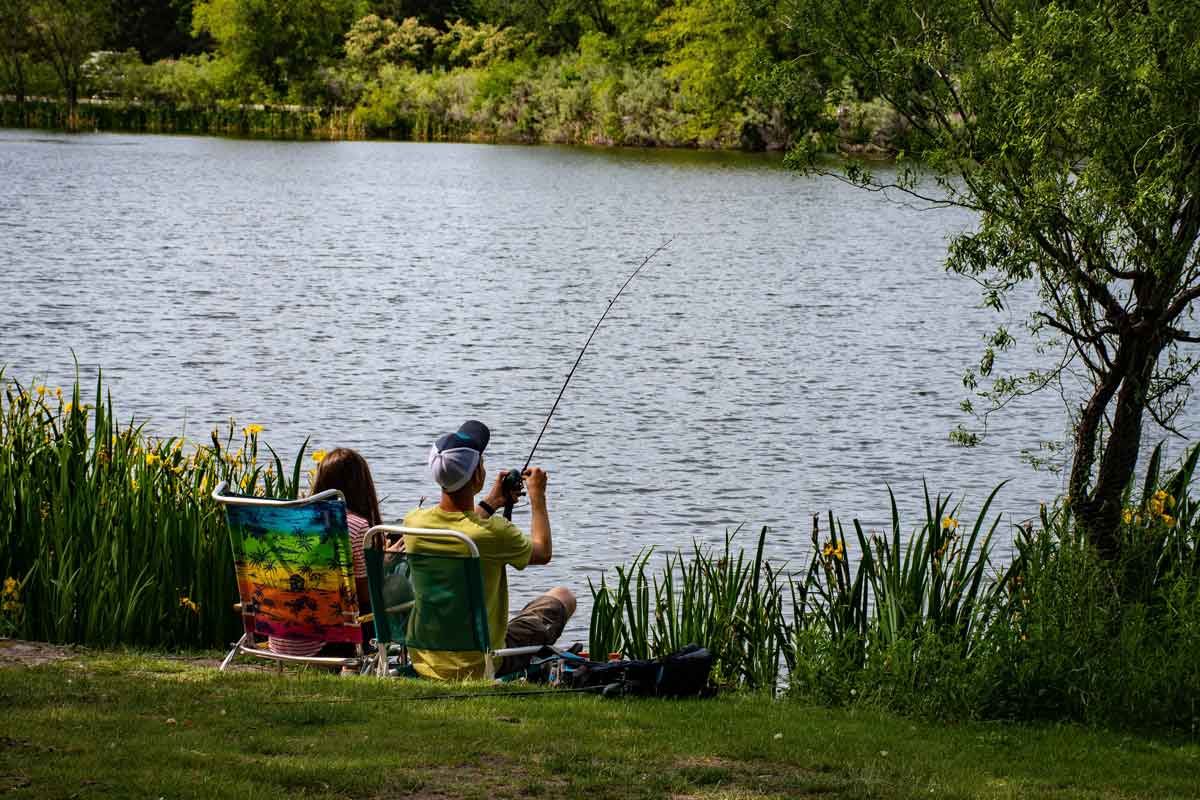Photo: Brett Sayles – Pexels…
From Thursday 16 June, anglers are encouraged to start fishing rivers again as the statutory close season for coarse fishing in England’s fisheries comes to an end.
The 16th is an eagerly awaited date in many anglers’ fishing calendars.
Coarse fishing is prohibited in some of England’s waterways from March 15th to June 15th (inclusive) each year to protect vulnerable fish stocks while they are spawning.
· Environment Agency prosecute anglers fishing without a licence
The close season provides an opportunity for the Environment Agency and partners to carry out projects up and down the country to further enhance habitats vital for improving fish spawning. An important task is monitoring spawning populations of barbel and chub, boosting our understanding of populations and their habitat use.
· Environment Agency is reminding anglers to make sure they have a fishing licence
While most people fish safely and legally, some people do break the rules. Our officers patrol all year round and suspicious activity will be challenged. By working closely with our partners on Operation Clampdown we can address these issues and minimise their impacts on the environment and on those who do the right thing.
· Anglers return to river fishing as the annual close season ends
Amir Fogel, Fisheries Team Leader said: “The annual close season is vitally important to protect our fish stocks, enhance our fisheries, and improve the fishing experience for anglers here in the South East.
“We are looking forward to seeing regular anglers back on the banks enjoying their fishing, and hopefully seeing a few new faces too. It’s fun, a great way to connect with nature and get away from daily pressures. But please don’t forget to purchase your fishing licence before you head off to the river banks – we won’t hesitate to take action to stop illegal fishing, and if you don’t have a licence you could face a hefty fine.”
The Environment Agency and partners also carry out important work in the winter months to ensure the close season is as beneficial as possible to fish populations, wildlife and the broader environment.
- Big catchment scale enhancements conducted to improve our fisheries, including re-naturalising river channels, speeding up flows, and protecting banks from erosion. This will increase diversity and spawning success.
- The construction of fish passes to help all fish species move freely and increase their chances of spawning success. Six new passes were built.
In the South East, money raised from the sale of fishing licences was allocated to a Fisheries Improvement Fund which has helped many projects, such as the creation of new fish passes, protecting fish stocks, providing new angling platforms, and improving accessibility so more people than ever are able to enjoy the sport.
£50,000 fine
Environment Agency officers, in partnership with the Angling Trusts Volunteer Bailiff Service (VBS), have conducted patrols throughout the close season to help protect spawning fish. This year marks the 10th anniversary of ‘Operation Clampdown’, and officers carried out 542 patrols across the country from 15th March to the end of May, reporting 49 anglers for offences and 162 other alleged breaches of fisheries legislation. Anglers have the potential to be fined up to £50,000 for fishing in the close season, highlighting the importance of this period to protecting fish populations.
Recent successful prosecutions in the south east include a Gillingham man fined £220, with £135 costs and £34 victim surcharge for fishing on the River Medway in close season.
Anglers can return to the rivers from 16th June and benefit from an improved fishing experience. Those returning to fishing, or taking up the sport for the first time, should make sure they have a fishing licence, with 100% of fishing licence income invested by the Environment Agency into the enhancement and protection of England’s fisheries. We have made this even easier this year by making the on-line purchase journey easier with the added benefit of the option to have a digital licence, saving postage costs and allowing more money to be spent on fisheries.
